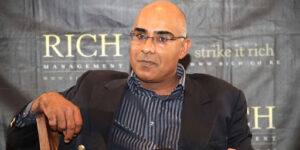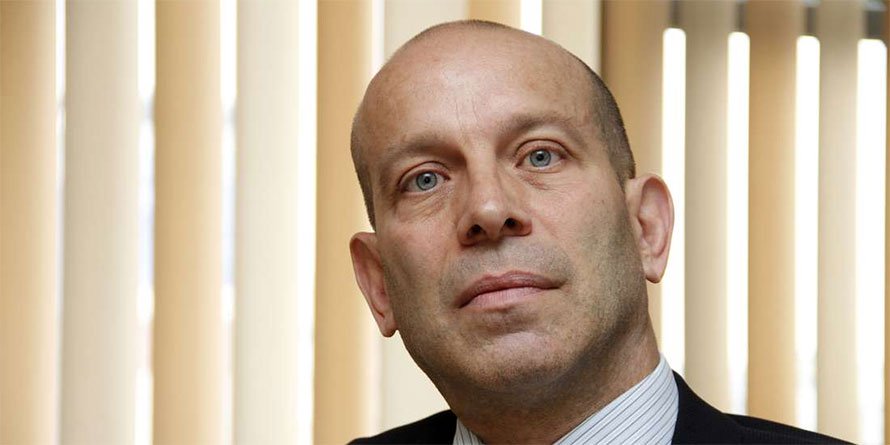The Capital Markets Authority (CMA) is engaged in a new court battle about the KenolKobil insider trading case after the former head of one of Kenya’s biggest stockbrokers – who was banned over the breach – moved to challenge the ruling.
Andre DeSimone, who quit his position as chief executive of Kestrel Capital in April last year over the insider trading allegations, has filed a suit with the Capital Markets Tribunal aiming for a clearance from the trading breach.
The CMA found out that DeSimone had disclosed price-sensitive documents relating to the impending takeover of KenolKobil by French multinational Rubis to two stockbroking agents, Aly-Khan Satchu and Kunal Bid in 2018.
The two agents also received punishments for trading in the non-public information.
Mr DeSimone has now resorted to a legal war with the CMA that has banned him from holding a senior position in any listed firm or a brokerage for a year.
He is arguing that the regulator had failed to establish if he profited from the leaked information.

He also wants the tribunal to quash the ban, reverse the Sh2.5 million fine slapped on him and he is also demanding compensation on claims that the evidence before the regulator is way below the threshold for insider trading.
“The ad hoc committee erred in fact and in law in not finding that the appellant’s disclosure of information to his co-accused was given without regard to motivation, intent knowledge or expectations of gaining any material benefit,” read part of Mr DeSimone’s court papers.
Mr DeSimone had admitted to the committee that he shared with Mr Satchu and Mr Bid materials touching on the Sh26 billion KenolKobil sale to Rubis.
The information was used by the two as an advantage as they traded on the Nairobi Securities Exchange (NSE) listed stock days ahead of the transaction.
The two then bought and advised their clients to buy or bought on their behalf about 59 million KenolKobil shares that were worth close to Sh1 billion a week before the takeover information was shared with the public
CMA is expected to file its defense to the suit this week after it received Mr DeSimone’s petition on April 8.
Mr DeSimone paid the Sh2.5 million fine that was slapped on him and is only left with weeks to complete the one-year ban. He maintains that the insider trading allegations had damaged his 30-year investment banking career and might render him jobless for life.
“While CMA may have viewed the one year regulatory ban as lenient, for a person working as a professional advisor in the financial service industry, being found culpable of insider trading is tantamount to a lifelong ban,” Mr DeSimone said in an affidavit.
The explosive insider trading trial revealed finer details of the KenolKobil insider trading scheme which is seen as the biggest ever to have hit Kenya’s capital markets.
Mr DeSimone described to the ad hoc committee how he met Mr Satchu at Capital Club to discuss opening an account for his clients who brought in up to Sh1 billion ($10 million) for the deal.
He handed over the price sensitive information and casually told Mr Satchu that he was looking to close the KenolKobil deal. He completely acted unprofessional and shared specific details on the takeover share offer price of Sh23 a piece.
The information he ‘sold’ helped Mr Satchu to broker a huge purchase of KenolKobil shares on the cheap from unsuspecting investors.
Last year, CMA seized Sh458 million gains where insider trading suspects stood to earn from the KenolKobil deal.
Mr DeSimone is downplaying the nature of his relationship with Satchu, pretending that they have only met for coffee and may be twice a year and at corporate events.
But CMA established that the communication between Mr Satchu and Mr DeSimone was in public domain after it confiscated their phones and laptops on January 15.
It also said that Mr DeSimone’s actions after purchase of the Kenol shares was suspect.
CMA said that he deleted WhatsApp messages, call records and text messages from his seized BlackBerry mobile phone. He also edited Mr Satchu’s response to CMA on the allegations.
The CMA hired East African Data Handlers, a computer forensic firm to recover altered or deleted electronic data from e-mails, computer hard drives and WhatsApp.
The regulator‘s unprecedented use of mobile forensic has marked a turning point in the prosecution of white collar crimes. Electronic data gathering for legal evidence is mostly deployed in terror and drug trafficking probe.


















